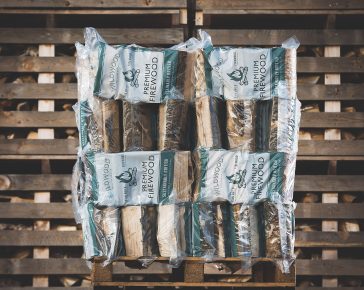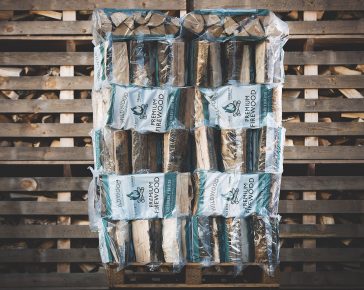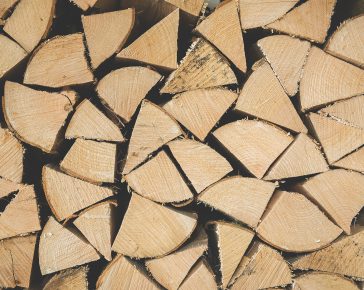Wildwood hardwood logs are kiln-dried at Treworder Barton farm near Wadebridge, Cornwall. Our wood is kiln-dried making our logs the most economical way to fuel your fire. They have a lower moisture content, meaning less energy is required to burn off residual moisture, so more energy is converted into heat.
FIND OUT MOREKiln-dried firewood produced in Cornwall
The standard logs are approximately 25cm long and ready for immediate use in open fires, wood burners, multi-fuel stoves and cookers. Kiln-drying ensures each log has less than 20% moisture content when packaged, making Wildwood firewood consistently efficient. The logs provide a clean burn as any remaining sap or water has been removed in the kiln. This prevents soot or tar build up in your chimney, keeps your stove glass clean and extends the life of your appliance.
Kiln-dried firewood produced in Cornwall
The standard logs are approximately 25cm long and ready for immediate use in open fires, wood burners, multi-fuel stoves and cookers. Kiln-drying ensures each log has less than 20% moisture content when packaged, making Wildwood firewood consistently efficient. The logs provide a clean burn as any remaining sap or water has been removed in the kiln. This prevents soot or tar build up in your chimney, keeps your stove glass clean and extends the life of your appliance.
Our hardwood is sourced from well-managed British woodland, ensuring Wildwood firewood is renewable and sustainable. We use a biomass boiler fuelled by wood waste to fire the kiln, creating carbon-neutral fuel. Read more about our work towards combatting climate change.
FIND OUT MOREOur hardwood is sourced from well-managed British woodland, ensuring Wildwood firewood is renewable and sustainable. We use a biomass boiler fuelled by wood waste to fire the kiln, creating carbon-neutral fuel. Read more about our work towards combatting climate change.
FIND OUT MOREWildwood kiln-dried hardwood logs are the most economical way to fuel your fire. They have a lower moisture content, meaning less energy is required to burn off residual moisture, so more energy is converted into heat.
FIND OUT MORE







